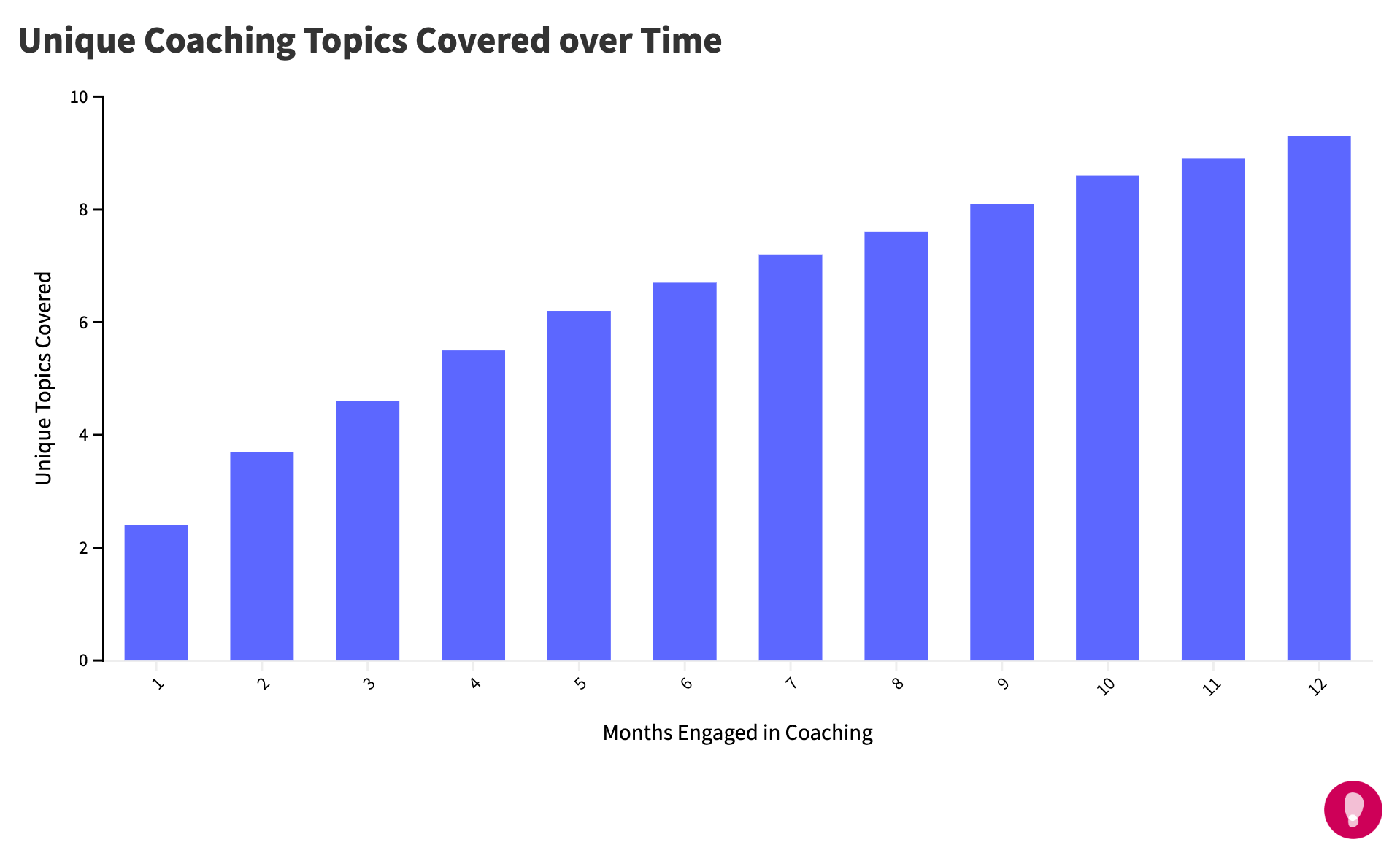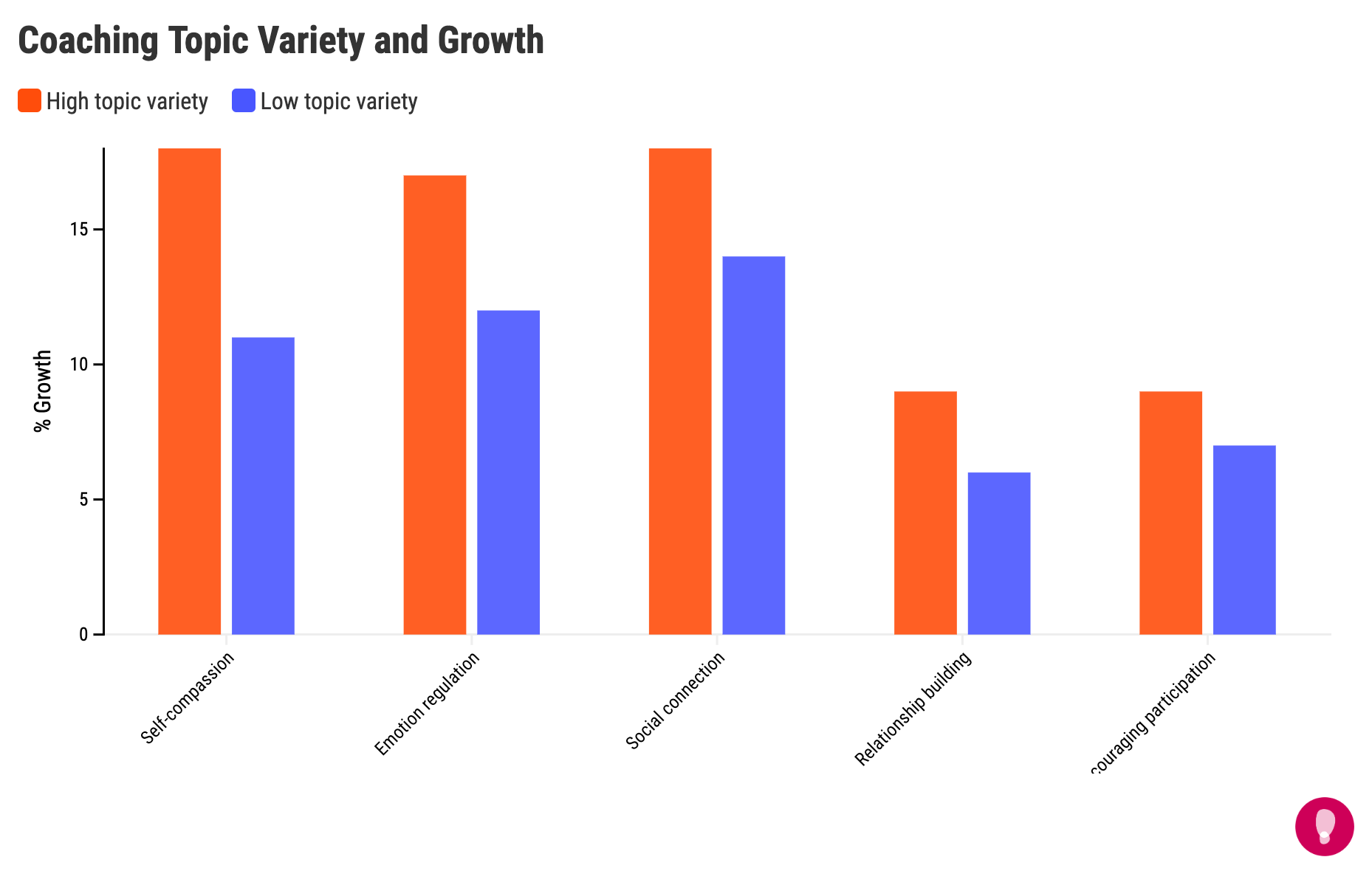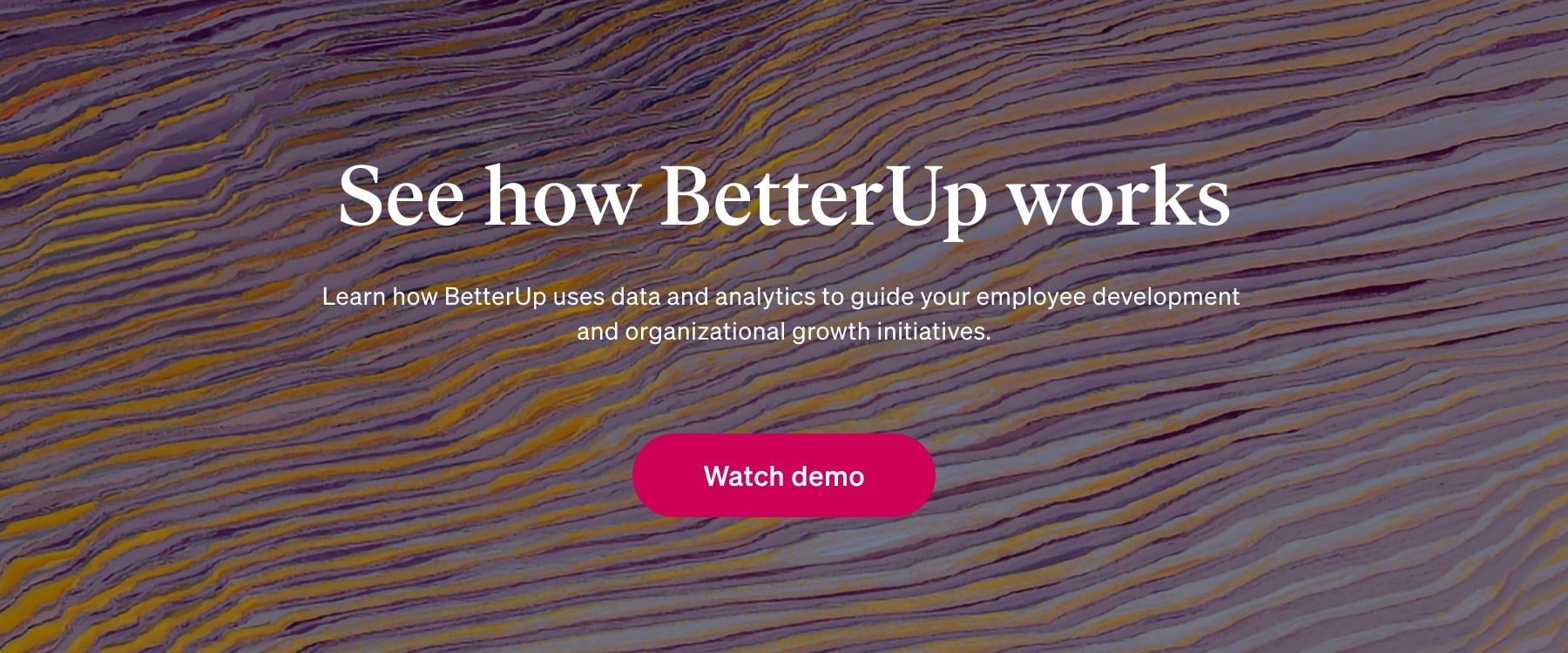-
For Business
For Business
Products
LeadBuild leaders that accelerate team performance and engagement.
Care™Drive productivity through sustained well-being and mental health for all employees with BetterUp Care™.
Solutions
Sales PerformanceTransform your business, starting with your sales leaders.
Diversity & InclusionFoster a culture of inclusion and belonging.
Customers
Case StudiesSee how innovative companies use BetterUp to build a thriving workforce.
- For Individuals
-
Resources
Resources
LibraryBest practices, research, and tools to fuel individual and business growth.
EventsView on-demand BetterUp events and learn about upcoming live discussions.
BlogThe latest insights and ideas for building a high-performing workplace.
ResearchInnovative research featured in peer-reviewed journals, press, and more.
- About
Having “too many” interests isn’t holding you back, it’s launching you forward

Picking just one topic to discuss, one skill to learn, or even one career to pursue is difficult for a curious person. While this restless enthusiasm to explore and discover is a source of joy and fulfillment, it can also feel like a roadblock to professional achievement.
Only recently has there been debate about whether it’s better to pursue a generalist path or a specialized one. The commonly held view for many decades was that developing one area of deep expertise was the best way to maintain employment, earn a high salary, and land at the top of the corporate ladder. Depending on the industry, some specialists do make considerably more money than their generalist colleagues, and often seem to be on the fast track when it comes to promotions and title bumps. And a glance at LinkedIn's latest insights reveals that the majority of the fastest-growing jobs in the country do seem to be “specialist” roles.
Does that also apply to coaching and growth? Do people who focus their professional coaching on only one topic area see higher rates of growth and advancement?
To find out, two of BetterUp’s behavioral scientists, Rainy Gu and Evan Sinar, analyzed data from over 10,000 BetterUp members. Members were grouped according to those who cover multiple topics with their coaches and those who focus on only a few topics. Then, we analyzed member outcomes to see if one group made more progress than the other.
The data reveal that pursuing multiple coaching topics results in higher levels of growth
The first thing we noticed is that the variety of coaching topics tends to increase over time across all members. As people become more familiar and comfortable with how the coaching process works and begin building skills, they expand their areas of concentration.

New members typically focus on an average of two topic areas with their coach when they begin the journey. But with a year of coaching under their belts, it’s not uncommon to see our members discussing and making progress in 9 or more different topic areas. While not entirely unexpected, this is exciting to see and speaks to the versatility and breadth of knowledge our coaches bring to the table.

The second thing we discovered was that members who cover a higher variety of topics with their coach experience significantly higher levels of growth, across multiple key skills, than those who covered fewer topics.
On average, members with a high variety of coaching topics saw:
- 44% more growth in self-compassion
- 36% more growth in emotional regulation
- 25% more growth in social connection
- 44% more growth in relationship building
- 25% more growth in encouraging participation
How exploring multiple topics benefits us as professionals
When it comes to coaching, there is no single correct path. The beauty of personalized coaching is just that — personal and tailored to the individual. But this data does hint at some interesting points about the way we learn and our ability to generate creative solutions.
People who have many interests and learn from different areas tend to be more successful. In his book, “Range: Why Generalists Triumph in a Specialized World,” David Epstein writes:
“Generalists… juggle many interests rather than focusing on one. They're also more creative, more agile, and able to make connections their more specialized peers can't see.”
Those who pursue coaching in multiple areas are likely more creative and find it easier to connect with others because of the broad nature of insights and learnings they are exposed to.
In the February 1995 issue of Wired Magazine, Steve Jobs explained his view of how a wide range of personal experiences aided in the creative process:
“Creativity is just connecting things. When you ask creative people how they did something, they feel a little guilty because they didn’t really do it, they just saw something. It seemed obvious to them after a while. That’s because they were able to connect experiences they’ve had and synthesize new things. And the reason they were able to do that was that they’ve had more experiences or they have thought more about their experiences than other people.”
The more ideas we are exposed to, the more conversations around those ideas we have, and the more experiences we open ourselves up to, the more creative “threads” we have available to us to try and tie together in novel ways. We also benefit from an expanded range of common ground with which to build connections with others.
The role of curiosity in our growth and how to cultivate it in two simple steps
Coaching topic variety could also be an indicator of the level of curiosity and open-mindedness of those being coached, which explains why these individuals grow more than others.
Research reveals that people who are open-minded have higher learning capacities than those who aren’t. They’re more likely to examine prior beliefs, decisions, and mistakes through a more critical lens and express openness to new ideas and ways of doing things.
Directly related to open-mindedness is curiosity. Open-minded people are willing to let different and unfamiliar ideas into their minds. Curious people go one step further — they seek them out.
The good news is that even if we aren’t naturally curious or open-minded, there is a two-step process that we can use to nurture those qualities in ourselves and build a sense of excitement around discovery.
- Re-evaluate your thoughts through accommodation
The first step is to be willing to challenge our viewpoint. Our past life experiences, social reinforcements, beliefs, and values combine to form what psychologists call our schema — the cognitive framework that we use to organize and interpret information.
When things don’t easily fit into our schema we must practice accommodation, the practice of suspending judgment. Accommodation means allowing ourselves to reexamine our beliefs and being open to coming to different conclusions based on this new information. It’s not an easy thing to do, but it’s a skill we can master with time. - Talk things over with a coach
The second step is to talk with an objective third party who can help us challenge our assumptions, see things from a different viewpoint, and explore unfamiliar ground alongside us. Professional coaches are trained to help their coachees grow their sense of self-awareness, adopt a growth mindset, and build resilience. They can’t do the Inner Work® necessary to cultivate these skills and dispel these biases for us, but they are expert partners and guides — helping us achieve ongoing, quantifiable growth.
At the end of the day, our individual growth is a highly personal endeavor. People grow in different ways and at different speeds. But there are tools we can use to accelerate our growth. By cultivating curiosity and open-mindedness, partnering with a qualified coach, and taking on multiple topics together, we can achieve the results we desire faster than we ever thought possible.
Erin Eatough, PhD
Sr. Insights Manager





